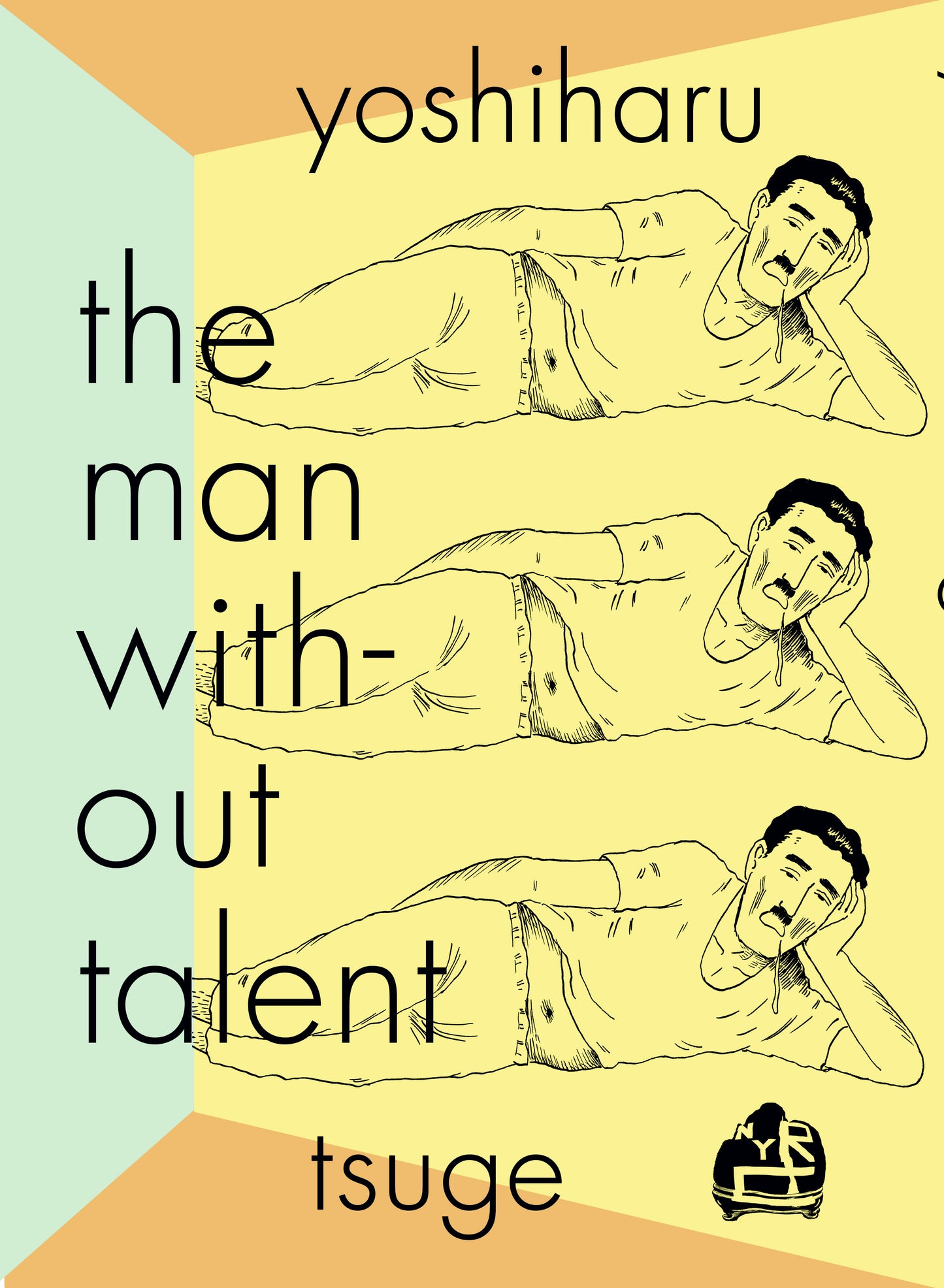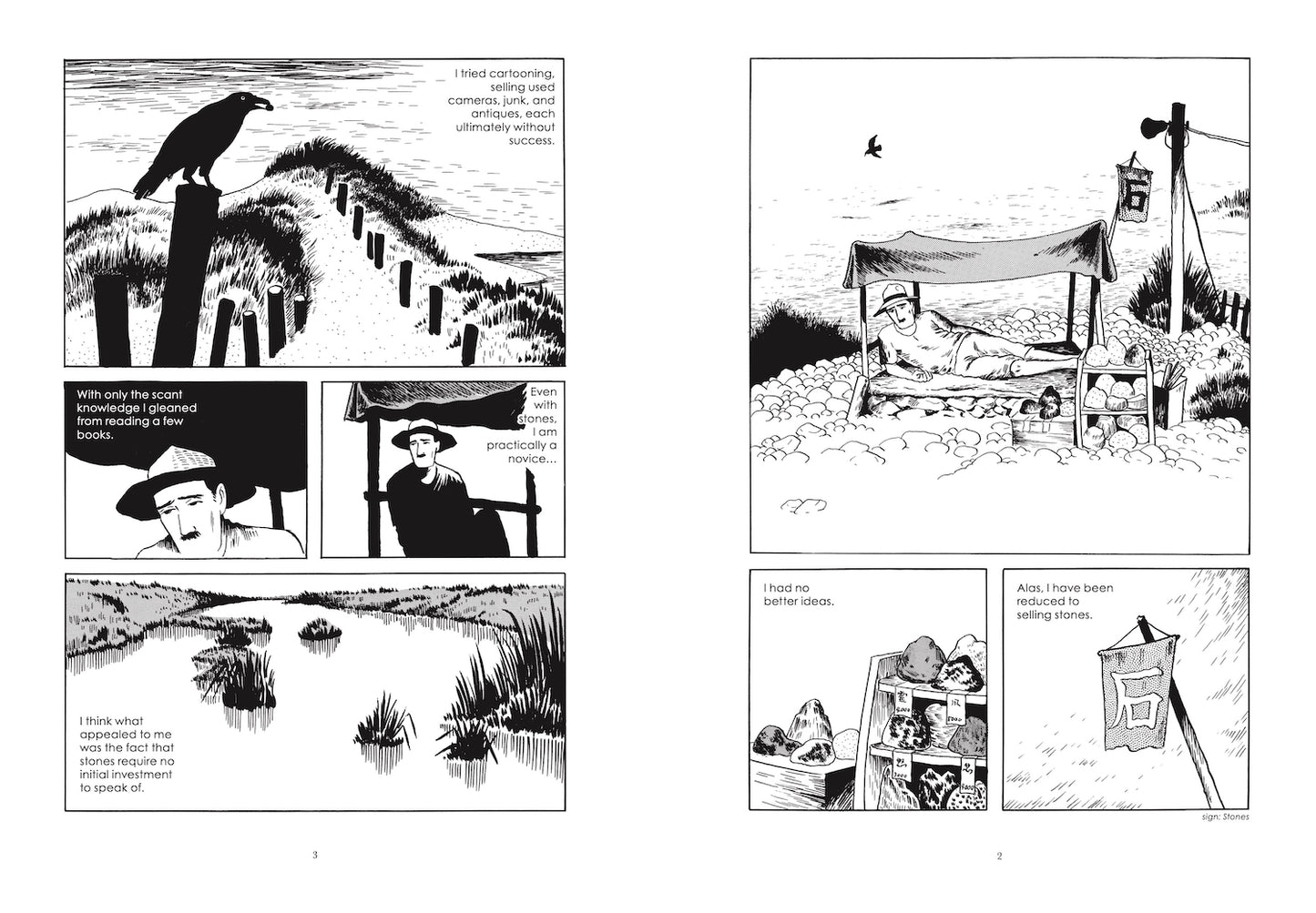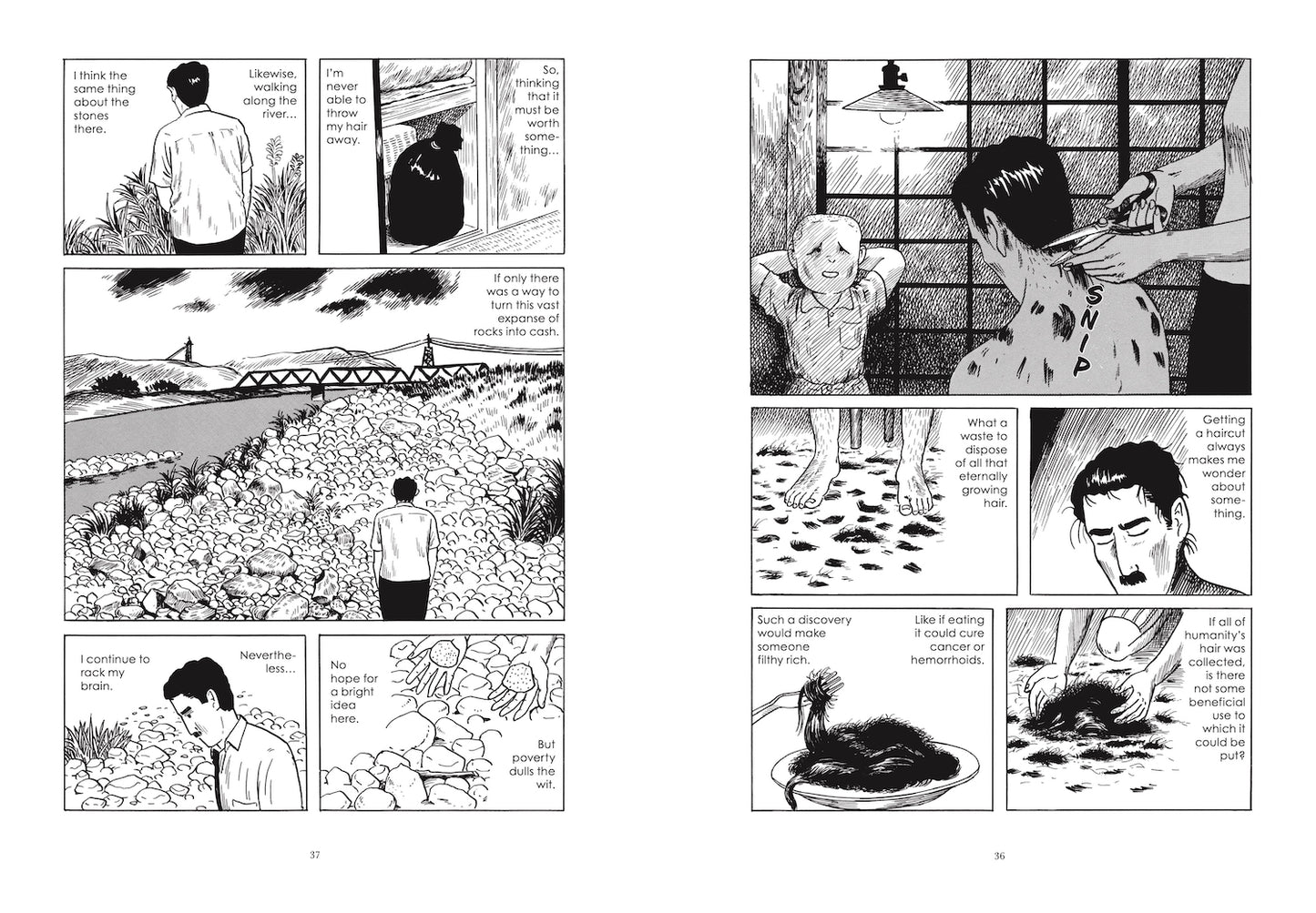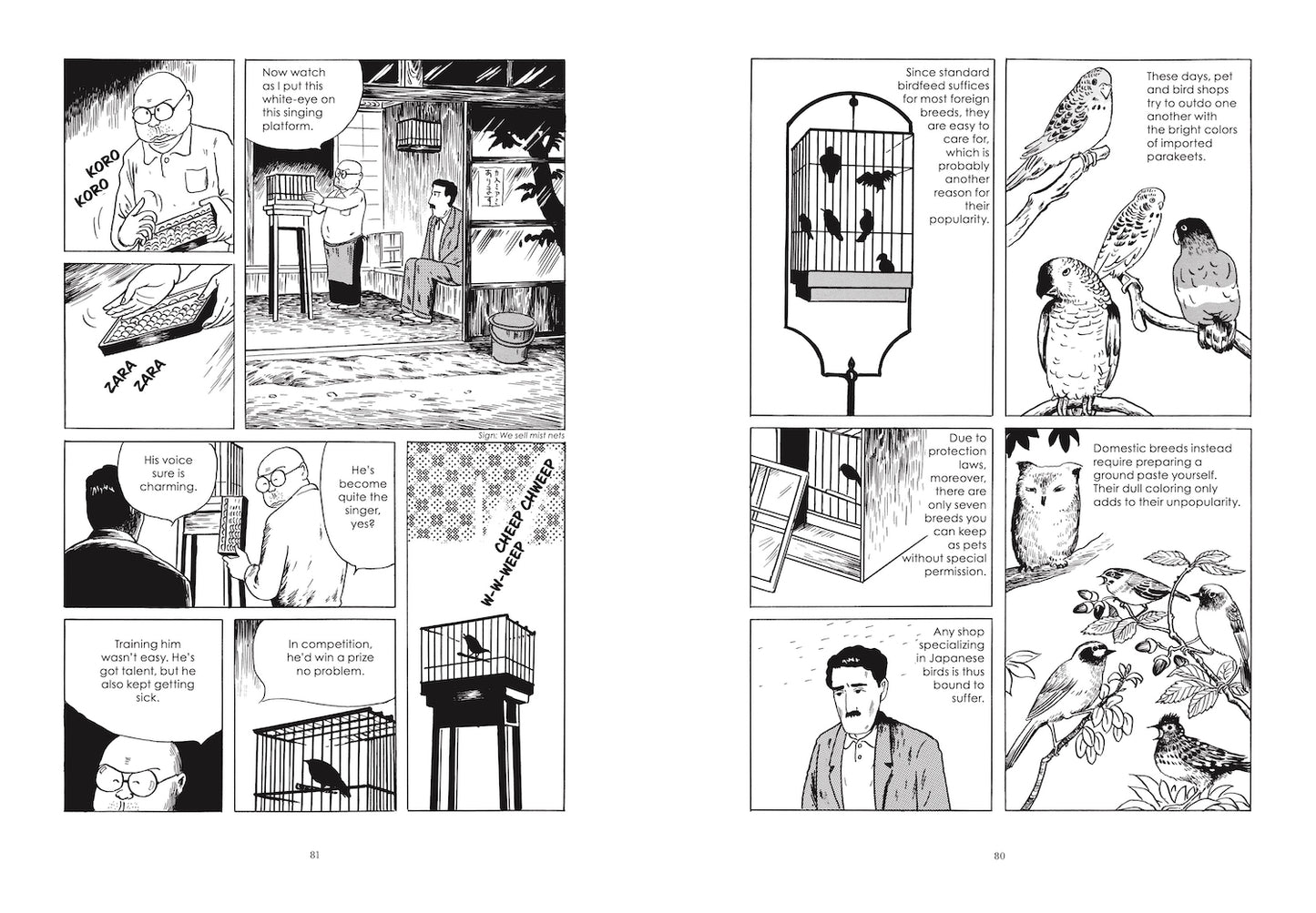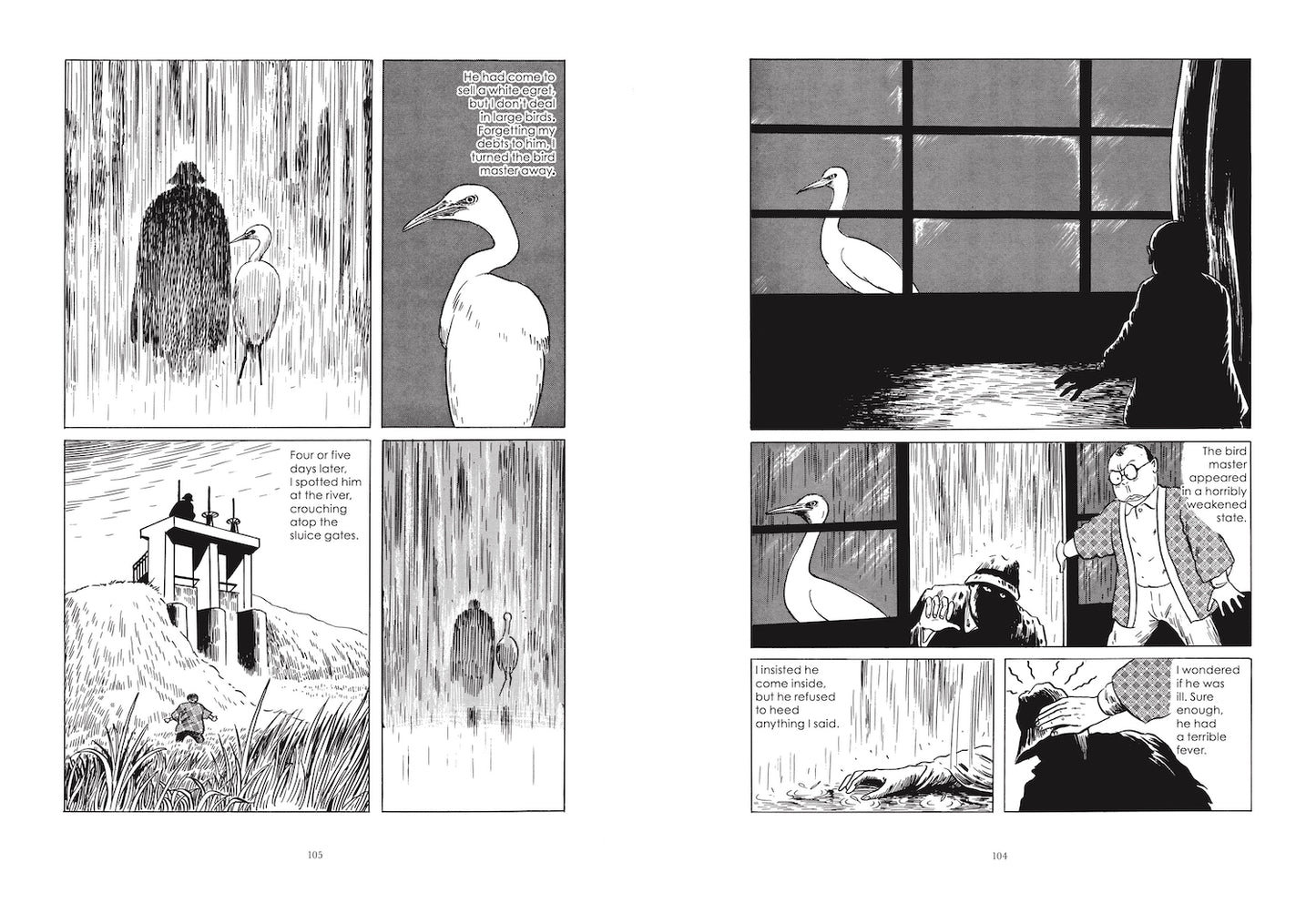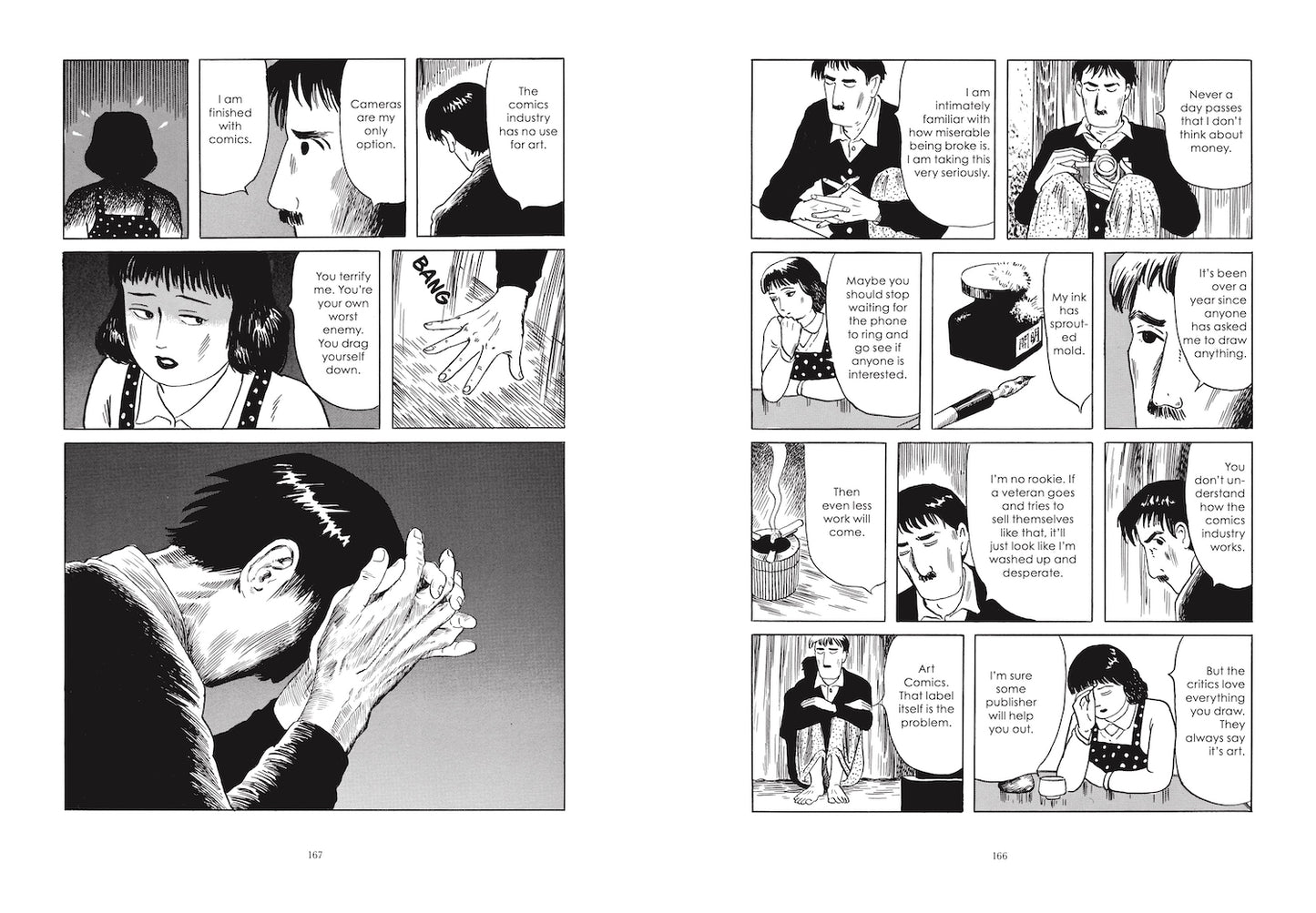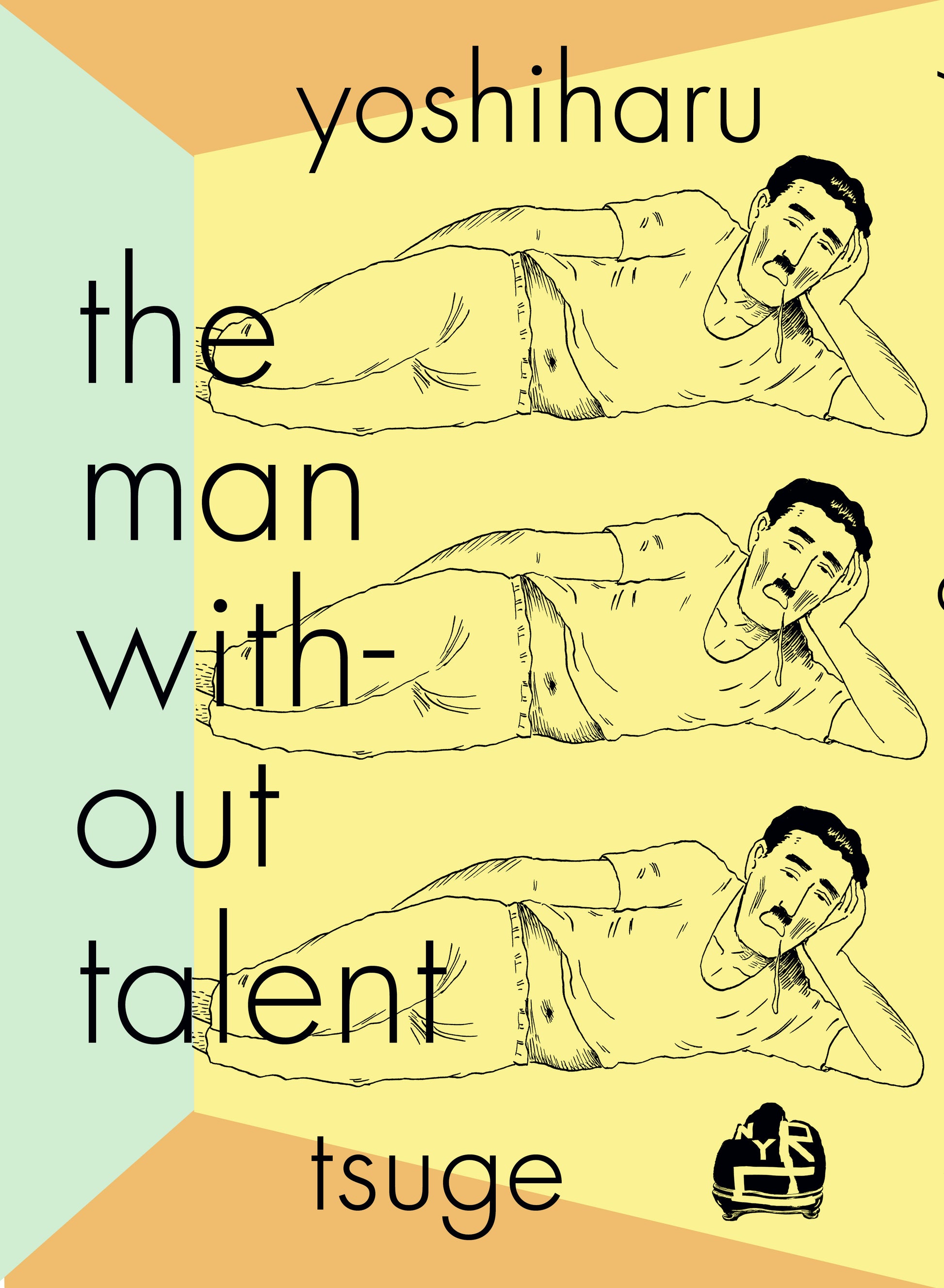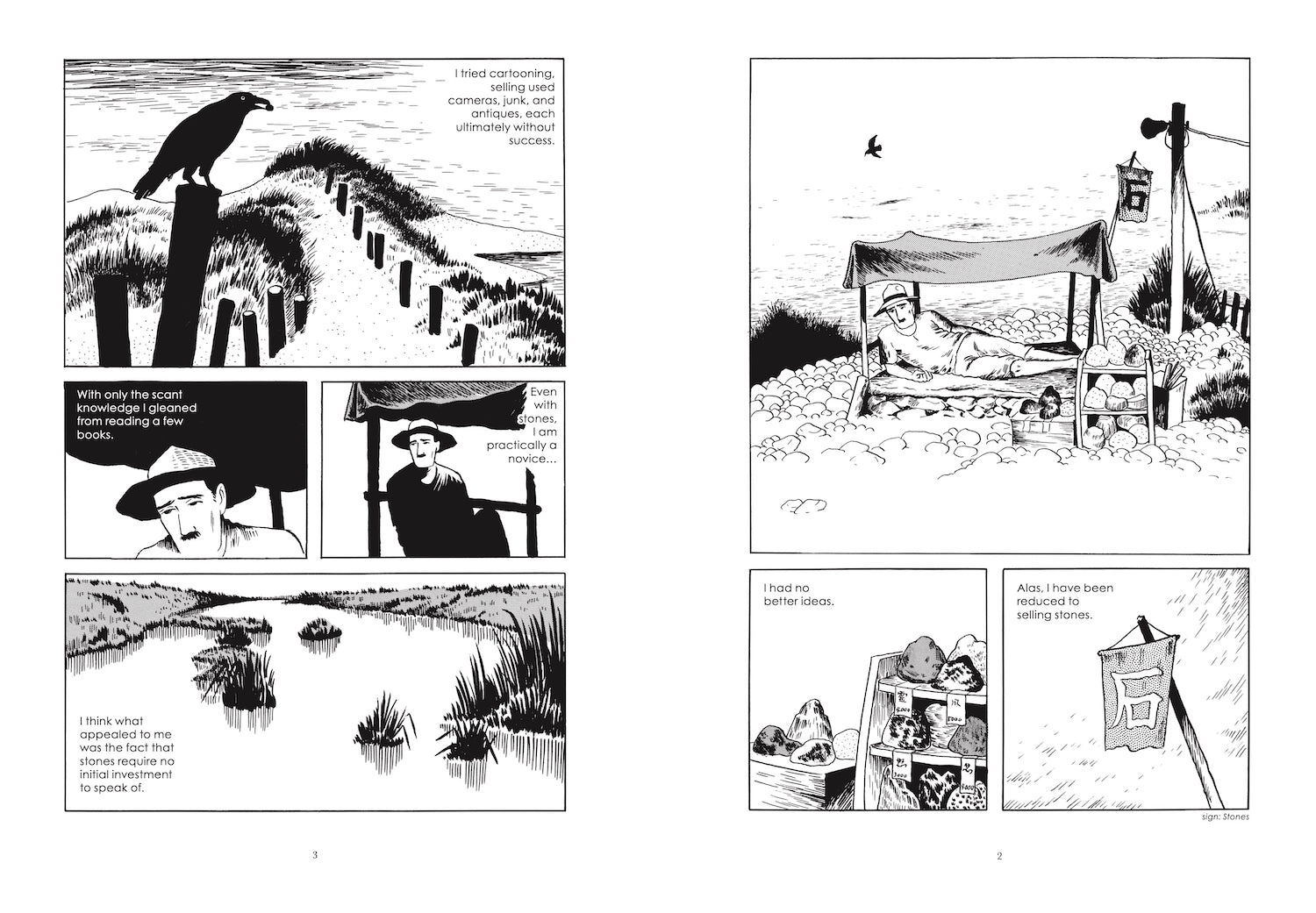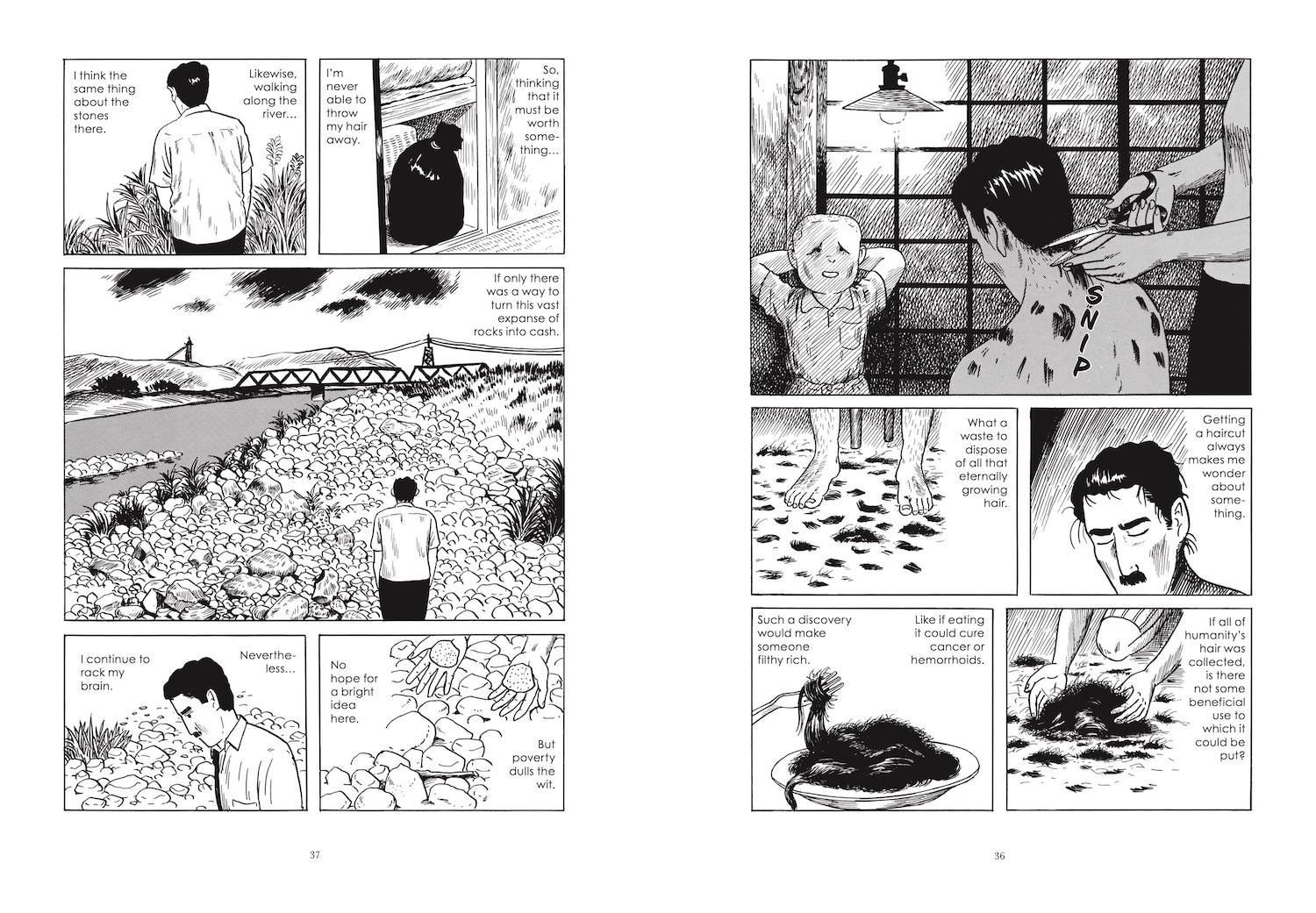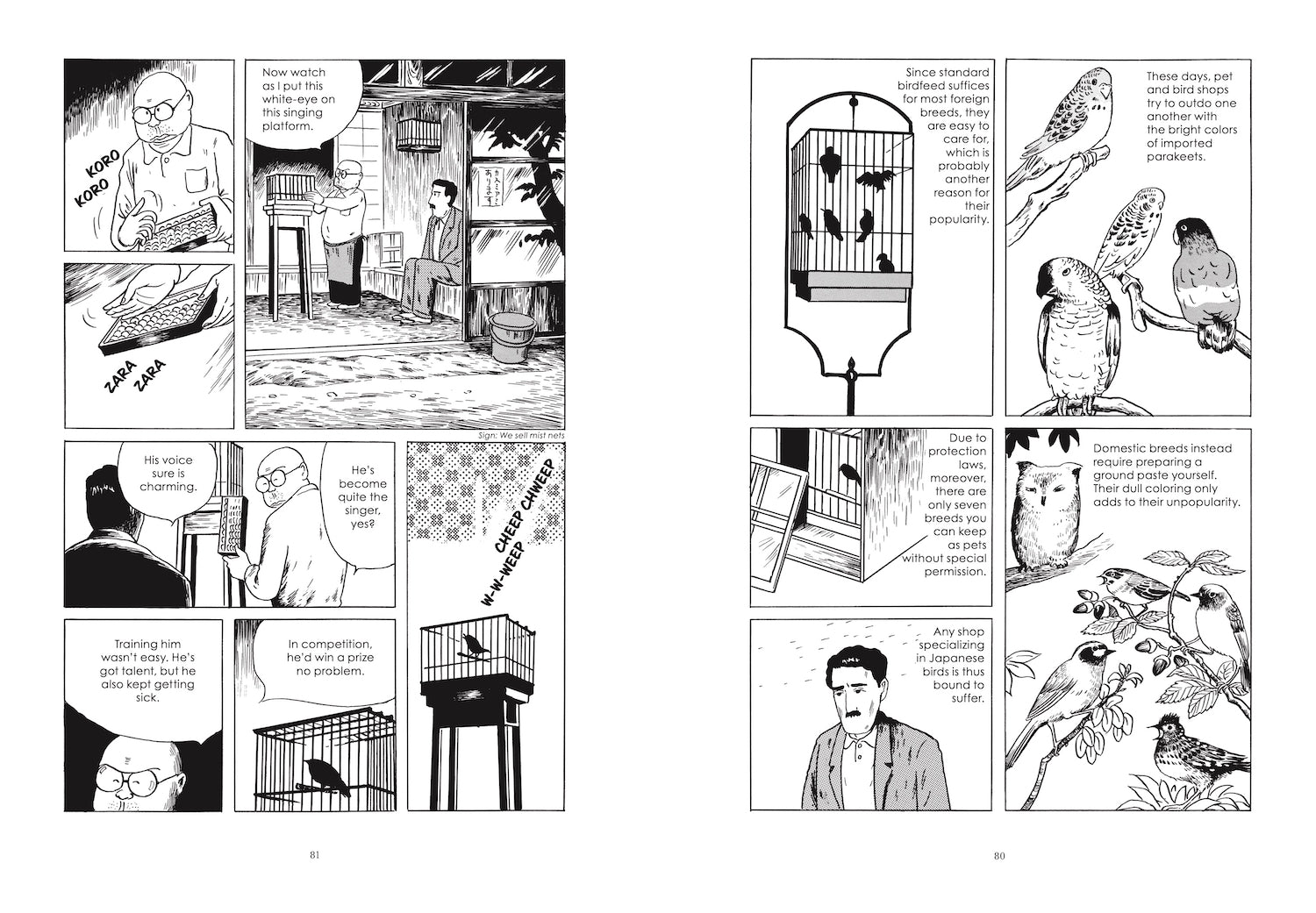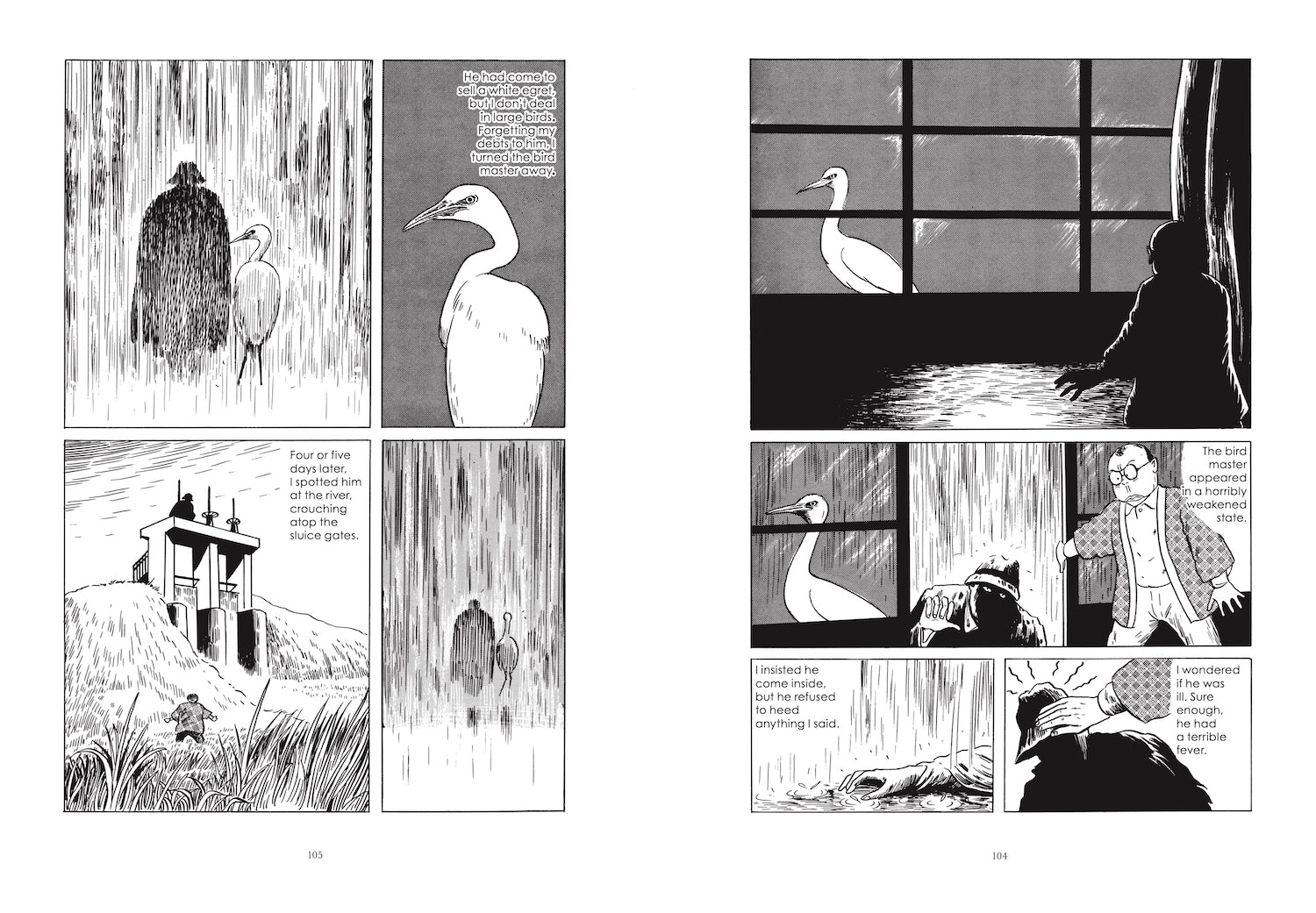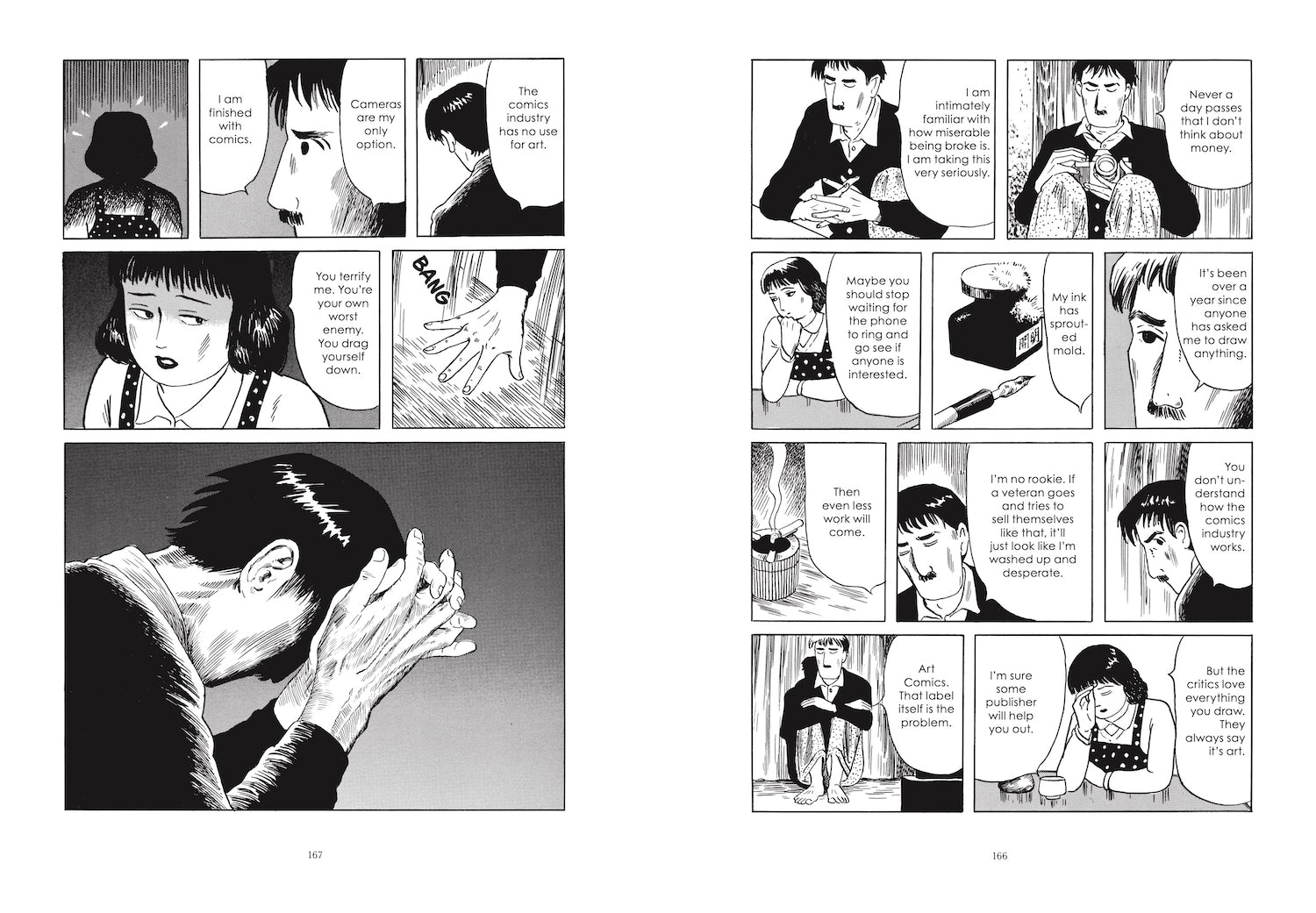While The Man Without Talent is by turns mysterious, philosophical and slapstick, it is also tender, capturing the moment-to-moment shift in emotions of a frustrated man who nevertheless loves his child. In a book about valuing the left behind, Tsuge shows us what is never actually at risk of being forsaken.
—Hilary Chute, The New York Times Book Review
Tsuge’s raw and profound work is equal parts pathos and poetry, streaked with irony and ribaldry. His lines are beautifully clean and wonderfully expressive, the pages sometimes presenting expertly cartoonish simplicity and other times almost photorealistic detail. . . . Humanity stunningly observed—a treasure.
—Kirkus, starred review
Tsuge’s quasi-autobiographical series of vignettes are a masterpiece of mundane struggle. . . . Every page feels lived and desperate, yet shot through with poetry.
—Publishers Weekly, starred review
[A] deeply philosophical parable about capitalism, art and beauty, and the pressures of modern life. . . . It is easy to see from this book how Tsuge has become one of Japan’s most celebrated gekiga (“dramatic pictures”) artists.
—Ella Bucknall, The Times Literary Supplement
This fascinating collection presents a Japan of scruffy shops and quiet streets in which forgotten men tell strange stories.
—James Smart, The Guardian
With its depiction of life in a liminal space at the point where an economic system is decaying, there probably wasn't a more timely reprint all year. Holmberg's translated dialogue is full of vernacular poetry, which I imagine/hope is quite close to the experience of reading the Japanese version. It certainly fits Tsuge’s gorgeous cartooning, which is often unfussy and employed to effectively tell the story, but sometimes surprises with its soft and loving approximation of the Japanese countryside and shacks full of possessions.
—The Comics Journal “The Best Comics of 2020”
Drawn in stark black-and-white panels, Tsuge's frank narrative portrays an artist-in-decline, an anti-Bildungsroman that offers effective storytelling, enduring characters, poignant reflection and, most notably, gratifying art. . . . Holmberg's [essay] 'Where Is Yoshiharu Tsuge?' is an illuminating enhancement—biographically, historically, literally.
—Shelf Awareness
Success is only in the past, for Sukezō and his acquaintances, and the melancholy, mediative tone persists to the end. Beautifully drawn and shaded, frequently matched with poetic writing, this is an exceptional introduction to a master cartoonist.
—Pete Redrup, The Quietus
[A] semi-autobiographical story that follows a former mangaka as he tries to find new, bizarre ways of providing for his family. . . . Tsuge highlights the struggle between soul-sucking, banal poverty and the desire to lead a simple, peaceful life. . . . The Man Without Talent allows the author and the reader to explore the fantasy of leading a contemplative life; but where other authors would laud such a lifestyle, Tsuge is bitterly honest about how such a lack of responsibility affects those around his protagonist while simultaneously proposing that there are too many demands in modern society.
—Morgana Santilli, Comics Beat
